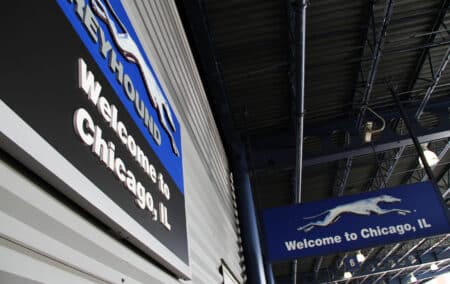The century-old icon of the American road, Greyhound, is losing bus stations throughout the US.
At least eight cities have lost their stations, including Philadelphia, Columbus and Tampa. Passengers have had to wait on street corners and parking lots, causing tensions with local officials.
Now Chicago’s station is at risk. About half a million people pass through Chicago’s Greyhound bus station. The station’s owner, an affiliate of hedge fund Alden Global Capital, has put it on the market. The 87,000-square-foot property could fetch more than $30 million.
The potential closure highlights a plight confronting millions of travelers, many on lower incomes.
Greyhound’s owner, German bus operator Flix, wants cities to help fund new facilities. Local officials say that is the company’s responsibility. Chicago would be the largest city to lose its terminal. It isn’t clear where passengers would wait.
Its former owner sold its stations to raise cash. Many are in desirable downtown locations, worth more as apartments or entertainment centres.
Intercity bus travel attracts less attention and public funding than rail or air travel. Nonetheless, it fills a vital role for passengers who need cheap transportation or who travel to places with no air or train service.
The intercity bus network, a cross-country web of regional providers connecting to Greyhound, reaches thousands of destinations on a single, relatively affordable ticket.
Greyhound is the only carrier that runs coast to coast. About half its customers make transfers. Closing the stations would make it difficult to change buses, possibly eliminating some routes.
‘It’s going to be very messed up’, said Jermaine Haynes, a 48-year-old from Flint, Michigan, as he rushed into the Chicago terminal to make his bus to Indianapolis. ‘It’s going to be hard to get to Chicago, man’.
[Photo: By The Erica Chang, CC BY 3.0, https://commons.wikimedia.org/w/index.php?curid=53940500]

